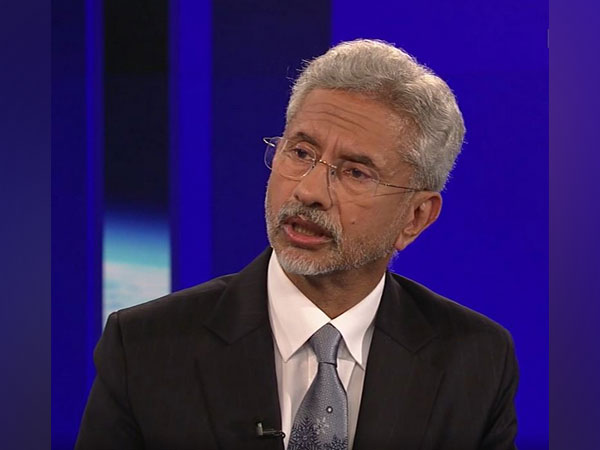Global South is about a 'mindset, a solidarity and a self-reliance', says Jaishankar

- Country:
- Nigeria
External Affairs Minister S Jaishankar on Monday said Global South is about a ''mindset, a solidarity and a self-reliance'' and without the advancement of the Global South, the world is not going to see planetary progress.
Addressing the Nigerian Institute Of International Affairs (NIIA) here on India and the Global South, he said the global agenda today is on promoting rebalancing and multipolarity, thereby restoring the world to its natural diversity.
The global conversation today is focussing ''on the advancement of the Global South because without the advancement of the Global South, we are not going to see planetary progress'', Jaishankar said.
However, this global conversation, the minister said, by its very nature is constantly distracted.
Some crisis happens, some big event happens, some other agenda comes in place. And the global conversation then boggles, it goes off track. People lose that sense of focus about what are the priorities, he said.
''So one of the big achievements of our (India's) G20 presidency was that, after some experience with a very polarised divided world, which was very much, I would say, focused on one particular region...we were able to bring back the attention of the Global South,'' the minister said.
Global South is about ''a mindset, a solidarity and a self-reliance'', he said.
Jaishankar said, ''Global South, most of all, is a mind set. Those who have it, will have it. Those who don't have it, will never get it. It is a mind set, which has some core principles.
''These are principles from our habits, from our political culture, from the way we have practised international relations...For example, non-intervention. For example, non-interference or being non-judgmental, or non-alliance.'' Global South, he said, is also about solidarity.
''Global South means having a heart. Global South means willing to share,'' Jaishankar said.
Elaborating, he said when India was still vaccinating people, it started supplying vaccines to 100 other countries in the world.
''And I compare it to Global North, where there were countries sitting on vaccines eight times the number of the population, and they won't give it to a small island next to them. That is the difference between Global South and Global North,'' Jaishankar said.
The transformation over the last decade, the minister said, has ''enabled India to be an example, a partner and a contributor''.
The minister also said the simple principle that must guide global governance, conversations and debates, is a conviction that no one should be left behind.
''And when we speak about no one being left behind. I think the welfare of Africa is particularly important. In fact, I will say, the rise of Africa is even more crucial because in a changing global order, we have seen growth in continents, once they got decolonised, that growth over a period of time, created a rebalancing -- of political rebalancing and economic rebalancing.
''And that rebalancing today is creating a world of a multipolar nature, where middle powers and perhaps others to regional organisations would have a fairer and more equitable say in how the world is strong,'' Jaishankar said.
So the global agenda, the minister said, in many ways, today is about restoring the world to its natural diversity. Because the world was diverse, the world is diverse. It was distorted by the period of Western domination. ''And in a post colonial world today, restoring that natural diversity is actually our collective objective,'' he said.
Jaishankar said contemporary challenges emanate from old forms of domination as well as new economic concentration.
Today, many of those who dominated the world for the last 200 to 300 years, continue to do so with new instruments, with new regimes, with different techniques, he said.
Jaishankar also said the old ''world order continues obstinately because those who are in the driving seat, don't want to create more seats for other people...''.
Jaishankar arrived in Nigeria in the concluding leg of his two-nation tour to Uganda and Nigeria.
He arrived in the Nigerian capital Abuja on Sunday after attending the Non-Aligned Movement (NAM) Summit in Uganda.
(This story has not been edited by Devdiscourse staff and is auto-generated from a syndicated feed.)
ALSO READ
Delhi Police Busts Nigerian-Operated Heroin Syndicate
MTN Uganda Secures $100 Million Loan for Network Expansion
Netherlands and UN Women Lay Foundations for Collaborative Campaign to Mark Beijing+30 Anniversary in Uganda
Uganda Reboots Oil and Copper Ventures
Nigerian National Arrested in Delhi for Drug Trafficking










